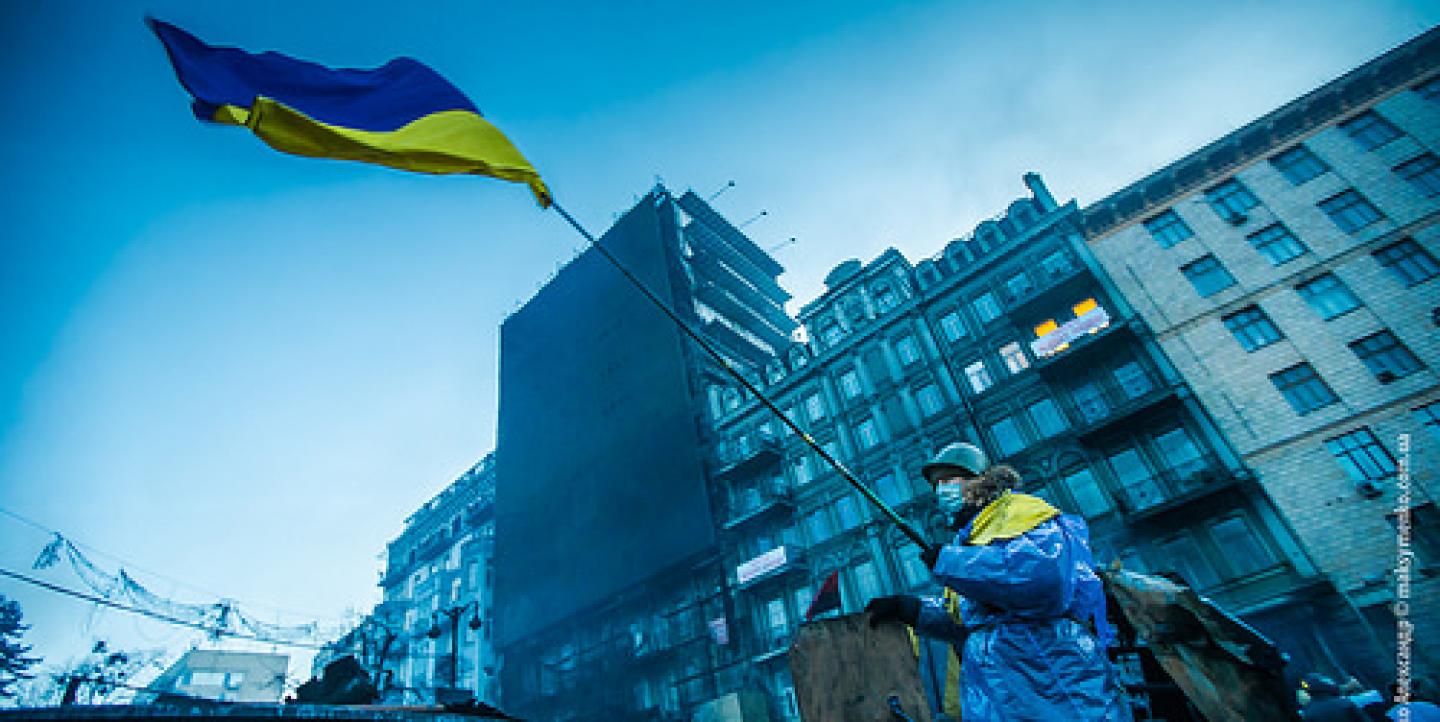In the hours after Ukraine President Viktor Yanukovych fled Kiev, reports started surfacing that there were documents floating in the reservoir on his palatial 350-acre estate outside the capital. The estate is well known to the media as an off-limits location.
But now dozens of activists from the opposition Euromaidan movement were there to document the corruption and that documentation was slowly sinking into the reservoir. Someone called divers, who began retrieving more papers from the bottom of the lake. Reporters Dmytro Gnap from Slidstvo/TV Hromadske, Vlad Lavrov from the Kyiv Post, and Oksana Kovalenko from Ukrainska Pravda were the first journalists on the scene.
There were tens of thousands of documents. Receipts for millions of dollars in cash. Lavish spending on exotic zoo animals and luxury goods. Records of Yanukovych’s sprawling investments. A black list of the local press.
Gnap, Lavrov, and Kovalenko quickly realized that the papers were not only explosive but in danger of being destroyed, stolen, or seized. Many were clumped in large waterlogged stacks. Others had been burned, including what reporters discerned to be a list of Yanukovych’s personal property. Adding to the tension was that nobody knew how long the journalists could be at the estate and whether government forces would suddenly knock on the door.
The reporters then did something remarkable. They made a decision to cooperate among all the news organizations and to save first and report later. It wasn’t an easy decision. But it was clear that if they didn’t act, critical records of their own country’s history could be lost. The scene was already filling with other reporters eager to grab what stories they could and leave. In contrast, the group was joined by a handful of other like-minded journalists: Anna Babinets of Slidstvo/TV Hromadske; Oleksandr Akymenko, formerly of Forbes; Katya Gorchinska and Vlad Lavrov of the Kyiv Post. Radio Free Europe reporter Natalie Sedletska returned from Prague so she could help, and others came, too.
Lavrov, a longtime investigative journalist, realized that the team would need more help. He reached out to the Organized Crime and Corruption Reporting Project (OCCRP), a consortium of investigative centers from Europe to Central Asia, where he serves as a regional editor. From the Yanukovych compound where the internet signal was weak, he called his editors at OCCRP in Sarajevo, Bosnia, to marshal money and support. The team also reached out to veteran journalist Oleg Khomenok, an investigative trainer with two media NGOs, Internews and Scoop. Khomenok raced to the site with a laptop and agreed to act as logistical coordinator. Someone called the state archives and a heat lamp to dry documents and an archivist arrived.
Most of a weekend was spent laboriously fishing out documents and drying them. The reporters soon learned that if the waterlogged piles were not separated and dried, they would turn into a pasty clump that could never be rescued. The team took over a boat shed the first night and then the next day moved to an opulent guest house on the grounds to lay out more documents. It became their headquarters. A sign outside reads “Journalism Investigation in Process – Do Not Disturb.”
Ukraine is, in many ways, an ideal place for this to happen. A feisty press has had their skills honed by years of reporting on secretive governments, corruption, and offshore ownership. Over the past 20 years, the Ukraine media has built an impressive tradition of investigative reporting. A half-dozen small investigative centers are alive and well around the country. Backed by groups like the Regional Press Development Institute and Western donors, Ukraine’s independent media even hosted the 7th Global Investigative Journalism Conference in 2011, bringing some 500 muckraking reporters from 75 countries to the heart of Kiev. "The gutsy Ukrainian press has taken naturally to investigative reporting,” says David Kaplan, director of the Global Investigative Journalism Network. “What you’re seeing is the result of years of training, networking, and reporting under very tough conditions.”
You can contact the Kiev team at yanukovychleaks(AT)gmail.com.
Drew Sullivan is a veteran journalist and media development specialist who has worked for almost a decade in Eastern Europe and Eurasia. He co-founded and served as the first director of the Organized Crime and Corruption Reporting Program, a regional consortium of investigative centers, where he now serves as advising editor.
This post is an excerpt from a piece which originally appeared on the Global Investigative Journalism Network (GIJN) website. It is excerpted and published on IJNet with GIJN's permission.)
GIJN is an association of 90 nonprofit organizations in 40 countries dedicated to investigative reporting. Every two years, GIJN co-sponsors the Global Investigative Journalism Conference. You can follow GIJN on its Global Listserv, through its Global Network News newsletter, and on Twitter and Facebook.
Image CC-licensed on Flickr via snamess.

